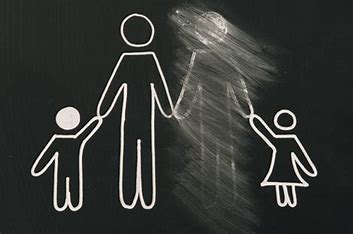 June 9, 2023
June 9, 2023
Parental Alienation.
Parental Alienation didn’t use to be ‘a thing’. It seems to me to be in the last 5 or 6 years that suddenly with cases in the family courts that include allegations of domestic abuse, the term ‘Parental Alienation’ is thrown around with abandonment – usually by the alleged perpetrator. So what is it?
The definition of ‘Parental Alienation’ is the manipulation of a child to reject one parent or the other.
In the eyes of the law, it is felt that children should have and be given the chance to, have a good relationship with both parents. To achieve this, it is is thought that each parent when separated, should have equal time with the child. I think we would all agree that any relationship breakdown, whether abusive or not, is really difficult and many people let their hurt be known to their children in one way or another, sometimes unintentionally. However, despite this, when a parent begins to isolate a child or make a child angry or afraid of, the other parent, this is called alienation.
There are many ways that this can happen but some of the ‘weapons’ of choice would be to badmouth and/or undermine the other parent, make contact with the other parent difficult, for example, not taking the child to contact, arriving late and picking the child up early.
The child could be manipulated into rejecting the other parent. Making the child feel guilty for loving the other parent or creating conflict with the other parent, which makes the child feel they have to choose between their parents.
There are lots of ways a child may be made to feel alienated against the other parent and sometimes the parent that is doing the manipulation, won’t even realise they are doing this. They are just hurt. Yes, we know it happens and it is never alright. But what happens when there is domestic abuse involved in that relationship breakdown?
Though parental alienation and domestic abuse are two separate issues, they can often have a significant overlap. We know that domestic abuse can take many forms including, but not limited to, physical abuse, emotional abuse, economic abuse, sexual abuse, and psychological abuse. Having one parent attempt to alienate the other parent can often be an extension of an already existing pattern of domestic abuse in the home.
I have seen this overlap so many times in the last few years with women I have been working with. It appears to have become a new way for perpetrators of domestic abuse, to continue to control and manipulate their ‘victim’ and they use the family courts to do this! What’s worse, is that the family courts allow the perpetrator to use the system to do this.
Whilst there is no compelling evidence or data on it’s prevalence, there is evidence that suggests and demonstrates the ways in which allegations of parental alienation are used in the family courts to deny, hide and divert from allegations of domestic abuse. When a mother raises concerns about whether contact between the child and a perpetrator of domestic abuse, is safe, they are accused of parental alienation. They are accused of turning the child against their father and of making false allegations of domestic abuse and even child abuse. In far too many cases such as this, the family court will make dangerous rulings that allow and force children into unsafe child contact with an abusive parent and further isolates the non abusive parent, making them distrust the justice system which is supposed to be there to protect them and their children.
Quite simply, parental alienation IS another form of domestic abuse. Yet we are back to square one on how we stop this! It comes back, yet again, to lack of awareness, training and understanding of domestic abuse on the part of the family courts and the justice systems in place, in general.
Until this is accepted and acknowledged by the powers that be, we will continue to hear and see of children being placed in impossibly dangerous situations, rendering the non abusive parent completely powerless to prevent further physical, emotional and psychological harm to not only their children but also quite possibly, to them as well.

